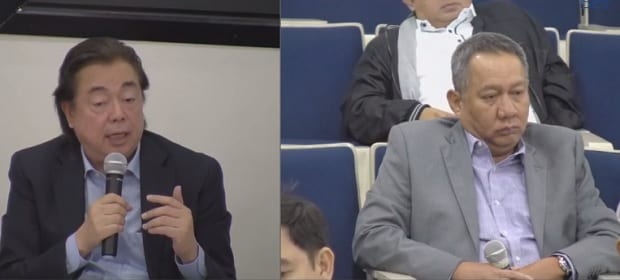Various stakeholders have urged the government to encourage the use of common tower facilities, which can be leased by current and future telco firms, through the establishment of more independent tower companies.

This call was made at a public hearing organized by the Department of Information and Communications Technology (DICT) on Thursday, September 27, in Quezon City.
At the forum, DICT said it will mandate two independent tower companies registered with the National Telecommunications Commission (NTC) to build and share their towers for use of the existing telco firms as well as a prospective new major player in the industry within the first four years of its implementation.
“Limiting with two may be a challenge for the operator and for the industry. Our suggestion is that it should not be two only it should be as much as possible and if operators can choose; the industry will grow and it will help us,” Shanshil Ahmed Shibly of multinational telco firm Telenor said during the public consultation.
“We suggest that it should be more — this will be beneficial to the mobile network operators and to the government as well,” he added.
On the other hand, a representative of American Tower Corporation, an international tower provider company, urged government to expedite the process of granting permits for the installation of the cell towers.
“Our current scenario is that the existing mobile network operators could not roll out more cell towers. The problem they are facing is more on the bureaucracy side — the number of permits. Our suggestion is that somewhere in the guidelines once we submit all the necessary paperworks for constructing the towers on a certain location within 15 days it should be deemed approved unless a government agency says that this is not possible. Otherwise, the bureaucracy will continue,” Shibly added.
Meanwhile, Globe Telecom legal counsel Froilan Castelo and presidential adviser for ICT Ramon Jacinto had a heated discussion on the issue of independent cell tower companies.
“We do not see how an independent tower company can alleviate or ease out the problems we are facing. They are private companies the same with us and they will be facing the same massive problems. We do not see any reason how it will help us and the situation in this country,” according to Castelo.
“We have to remain focus on the objective in creating more cell sites. If we are going to make this exclusive we cannot see how this will speed up the rollout. What we really need right now is the easing of bureaucracy in the government,” he added.
Globe earlier disclosed that it has created an independent tower company for the building of cell towers that may be utilized for the delivery of mobile services to its subscribers with its incorporation approved by the Securities and Exchange Commission last month.
Jacinto said Globe and Smart has lost the “moral ascendancy” to build cell towers in the country. “That’s the very reason why you cannot provide the service to the public, and now you say you can,” Jacinto said.
He added that the government is committed on ensuring the financial viability of the independent tower companies. “What bank will finance a common tower company if we say anybody can build a tower? It will not be viable, you have to nurture the independent tower company,” he said.
Under the proposed policy, tower companies should be independent of mobile network operators and the telcos must not own any equity in the tower firms to promote tower sharing, non-discriminatory access, uniformity, and transparency in the leasing arrangements.
DICT acting secretary Eliseo Rio Jr. said the policy of the government is to mandate sharing of telco infrastructures and provide regulations for their deployment.
“We are trying to come up with a policy that will become more acceptable among the telcos and tower providers,” Rio said. He explained that the common tower policy will free up the telcos from building towers since they can lease the facilities built by a tower company at less cost.
Last July, infrastructure firm ISOC Infrastructures Inc. submitted its unsolicited proposal that will allocate P100 billion to build 25,000 cell towers within seven years.
The Philippines has one of the lowest tower densities in the world with less than 20,000 towers serving 100 million people. Recent studies reportedly indicate that an additional 50,000 towers should be erected to serve the current voice and data traffic.
The lack of cell towers has been identified as one of the barriers that results in slow and costly Internet services in the country. — Aerol John Patena (PNA)




